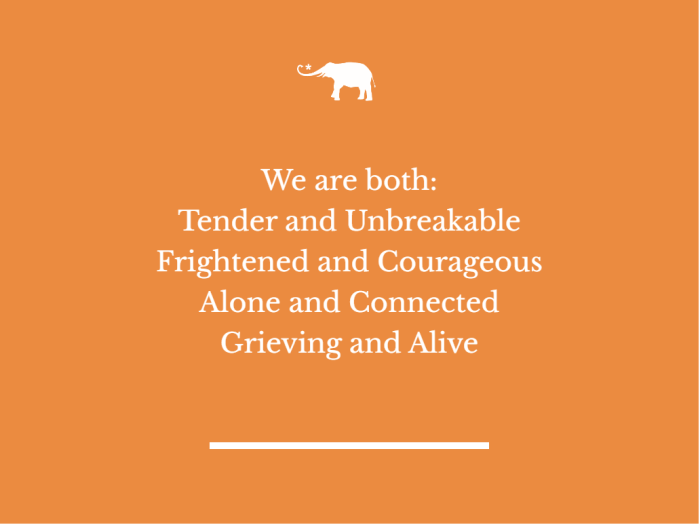Habits are created by repetition. What we say to ourselves on a regular basis can make or break our spirit. If you are consistently feeling angry, judgmental, guilty, lonely, less than, or sad, chances are your self-talk vocabulary could use an upgrade.
Our minds love to think in black and white. It places things into preordained compartments, such as: black or white; comfortable or uncomfortable; good or bad. The mind demands order, and feels threatened by all ambiguity or change, including positive change.
When we try to break an old habit or create a new one, the mind will sabotage our efforts in order to feel safe, secure and content in the comfort zones it has created for survival purposes.
A black or white mindset dismisses the greys, blues, yellows, or greens in between. It stunts our perspective, growth, curiosity, empathy, and joy, while never considering our dreams and intentions because ‘all change is bad.’
What we tend to forget is that dualities exist simultaneously. Thoughts and emotions are happening side by side all of the time. But with the help of our negativity bias, we tend to cling to the ‘bad’ as a survivor mechanism.
With increased awareness of existing dualities, we can use our power of discernment to create a different vocabulary that we use with ourselves. Dualities can look and sound like:
We are tender and unbreakable.
We are frightened and courageous.
We are alone and connected.
We are grieving and alive.
We are human beings having human experiences. All is valid. All belongs. But too often we get stuck in the broken, frightened, loneliness, and grief. Before you know it, those emotions, thoughts, and words become a habit. This habit does not serve us, it harms our true essence.
The good news is that habits and comfort zones are meant to be flexible, shifted, and even broken. We both know that habits are hard to break, but if you truly want something to change, you will create the change.
Try these three practices:
1 Start with your ‘why’. This is not cliché, it’s the glue that holds the journey towards change together.
Ask yourself:
Why do you want to change your vocabulary with yourself?
Why is that answer important to you?
Why is the answer to #2 important to you?
Place your why where you can reference and see it every day.
2. Observe your emotions. Without judgement, notice if you feel happy, joyful, grateful, enthusiastic, and excited most of the time; or are you angry, sad, frustrated, guilty, or feeling like a victim more often than not.
3. Practice discernment. Discernment is the opposite of judgement. Judgement sounds like hammering yourself on top of the head when you make a mistake or fail at a goal. Discernment asks what you learned and what you can do better the next time.
Self-awareness is the first step towards change. The next is to formulate and plan and to take action, because 80% of your success is through practice.
Finally, embrace curiosity! What is your mind telling you? Where do the words come from? How do they make you feel? How do you act with the words you receive? Why would you want to consider an upgrade?
You deserve to live your best, most authentic life at every age. Instead of tuning out, I invite you to tune in. The answers are always found within.
#mentalfitnesscoach #mentalfitness #authenticity #relationshipcoach #habits #selftalk

 Share on bsky
Share on bsky





Read 0 comments and reply